December 3, 2020
November 26, 2020
People still struggling with shift to remote living
by Jayne Smith • News, Technology, Wellbeing
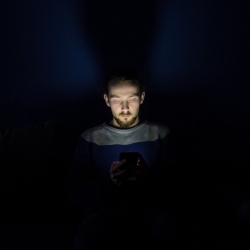 A lack of balance through lockdown has been felt most dramatically by Brits living in house shares according to new research released by Microsoft Windows. The research claims that over 40 percent of people living with house mates, friends or professionals are finding it increasingly difficult to destress and unwind after a long and challenging day; while a further 1 in 5 of the UK population admit that work and play has become blurred in 2020. (more…)
A lack of balance through lockdown has been felt most dramatically by Brits living in house shares according to new research released by Microsoft Windows. The research claims that over 40 percent of people living with house mates, friends or professionals are finding it increasingly difficult to destress and unwind after a long and challenging day; while a further 1 in 5 of the UK population admit that work and play has become blurred in 2020. (more…)
November 25, 2020
Maternity leave causes women to lose out on £3.2 billion
by Jayne Smith • News, Wellbeing, Working culture, Workplace
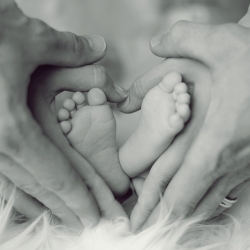 Women taking maternity leave collectively lose out on £3.2bn worth on earnings, a fall of nearly half their average annual salary, claims new research from Direct Line Life Insurance. (more…)
Women taking maternity leave collectively lose out on £3.2bn worth on earnings, a fall of nearly half their average annual salary, claims new research from Direct Line Life Insurance. (more…)
November 25, 2020
Third of people working from home worry about mental health
by Jayne Smith • News, Wellbeing, Working lives
 In a recent survey of 4,000 office-based employees and 1,000 employers in the UK, U.S, Singapore and the UAE, a third of employees expressed concern for their mental health whilst working from home during the COVID-19 pandemic. The research, conducted by health benefits provider, Aetna International, examines the perceptions of both employers and employees when it comes to corporate health and well-being. (more…)
In a recent survey of 4,000 office-based employees and 1,000 employers in the UK, U.S, Singapore and the UAE, a third of employees expressed concern for their mental health whilst working from home during the COVID-19 pandemic. The research, conducted by health benefits provider, Aetna International, examines the perceptions of both employers and employees when it comes to corporate health and well-being. (more…)
November 25, 2020
Several factors impact wellbeing of people working from home
by Jayne Smith • News, Wellbeing, Working lives
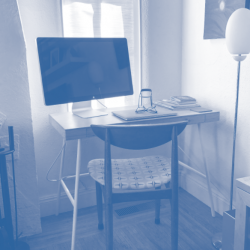 A new study on work-life balance claims that the COVID-19 crisis is a crucial factor – but not the only one – behind low levels of wellbeing among employees working from home. A research team including Professor Ilke Inceoglu, Professor of Organisational Behaviour and HR Management at the University of Exeter Business School, analysed data from 835 university employees, who completed a baseline questionnaire on wellbeing and took a weekly survey. (more…)
A new study on work-life balance claims that the COVID-19 crisis is a crucial factor – but not the only one – behind low levels of wellbeing among employees working from home. A research team including Professor Ilke Inceoglu, Professor of Organisational Behaviour and HR Management at the University of Exeter Business School, analysed data from 835 university employees, who completed a baseline questionnaire on wellbeing and took a weekly survey. (more…)
November 24, 2020
Work really has become much harder during the pandemic
by Eva Selenko • Features, Flexible working, Wellbeing
 The pandemic has seriously altered how we work. According to statistics published by the International Labour Organization (ILO) in September 2020, US$35 trillion (£26 trillion) has been lost globally in labour income. There has also been an estimated loss of 17 percent of working hours worldwide since 2019, with young people and women being hit hardest. And many of those still in jobs are working under very different conditions. (more…)
The pandemic has seriously altered how we work. According to statistics published by the International Labour Organization (ILO) in September 2020, US$35 trillion (£26 trillion) has been lost globally in labour income. There has also been an estimated loss of 17 percent of working hours worldwide since 2019, with young people and women being hit hardest. And many of those still in jobs are working under very different conditions. (more…)
November 24, 2020
Legal and mental health concerns mount as businesses brace for redundancies
by Jayne Smith • Business, News, Wellbeing, Workplace
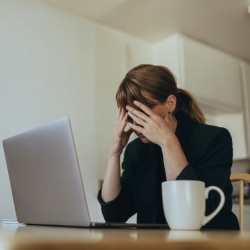 Despite the last-minute extension of the furlough scheme, new research conducted among UK business leaders claims that great concern remains around making redundancies and in particular the legal risk. The survey of over 440 UK business leaders, conducted by employment law and HR support firm Ellis Whittam, also claims two-thirds (66 percent) believe the prospect of making redundancies has negatively impacted their mental wellbeing. (more…)
Despite the last-minute extension of the furlough scheme, new research conducted among UK business leaders claims that great concern remains around making redundancies and in particular the legal risk. The survey of over 440 UK business leaders, conducted by employment law and HR support firm Ellis Whittam, also claims two-thirds (66 percent) believe the prospect of making redundancies has negatively impacted their mental wellbeing. (more…)
November 23, 2020
Mental health issues in young fathers caused by a lack of support in work and educational settings
by Jayne Smith • News, Wellbeing, Working culture
 New research published by Leeds Trinity University and parenting platform DaddiLife claims that young fathers face preventable barriers when accessing education and employment, leaving some in vulnerable positions with an increased risk of facing mental health issues. (more…)
New research published by Leeds Trinity University and parenting platform DaddiLife claims that young fathers face preventable barriers when accessing education and employment, leaving some in vulnerable positions with an increased risk of facing mental health issues. (more…)
November 23, 2020
Younger workers suffer most from remote working, new study claims
by Jayne Smith • Flexible working, News, Wellbeing, Working lives
 Staff need on average three days a week (2.91) in the office to achieve maximum productivity, according to a new study by ISG. In results from the UK-wide “The Power of Place” study examining the future of the workplace, employees believed that spending on average three days a week in the office would be optimal for productivity. When asked how many days they thought would be needed to optimise their wellbeing, workers cited on average over half a day less, 2.34 days per week, in the office. (more…)
Staff need on average three days a week (2.91) in the office to achieve maximum productivity, according to a new study by ISG. In results from the UK-wide “The Power of Place” study examining the future of the workplace, employees believed that spending on average three days a week in the office would be optimal for productivity. When asked how many days they thought would be needed to optimise their wellbeing, workers cited on average over half a day less, 2.34 days per week, in the office. (more…)
November 20, 2020
Men and young people more likely to disregard COVID-19 regulations
by Jayne Smith • News, Wellbeing
 Men, younger people, and those with conservative political views are less likely to comply with Covid-19 measures such as social distancing, claims new research from BI Norwegian Business School. The findings also claim that detailed instructions on the virus and health behaviours can help increase adherence to Covid-19 measures. (more…)
Men, younger people, and those with conservative political views are less likely to comply with Covid-19 measures such as social distancing, claims new research from BI Norwegian Business School. The findings also claim that detailed instructions on the virus and health behaviours can help increase adherence to Covid-19 measures. (more…)
November 19, 2020
Covid-19 is levelling the playing field for disabled workers
by Ruby Gullon • Comment, Flexible working, Wellbeing
 As many of us cope with yet another lockdown, optimism is easy to misplace but, for disabled workers, this could result in monumental change for future employment. On the month commencing the 25th anniversary of the Disability Discrimination Act and the run-up to International Day of Disabled Persons, could this be the final push for change? As we swing in and out of remote-working, whether you love it or loathe it, one thing is abundantly clear – it can be done. Something that the 2 billion people currently living with disabilities have always known. Life can be accessible anywhere if you put your mind to it. (more…)
As many of us cope with yet another lockdown, optimism is easy to misplace but, for disabled workers, this could result in monumental change for future employment. On the month commencing the 25th anniversary of the Disability Discrimination Act and the run-up to International Day of Disabled Persons, could this be the final push for change? As we swing in and out of remote-working, whether you love it or loathe it, one thing is abundantly clear – it can be done. Something that the 2 billion people currently living with disabilities have always known. Life can be accessible anywhere if you put your mind to it. (more…)








 A new think tank has launched today to mark the United Nations’ International Day of Persons with a Disability. Called ‘
A new think tank has launched today to mark the United Nations’ International Day of Persons with a Disability. Called ‘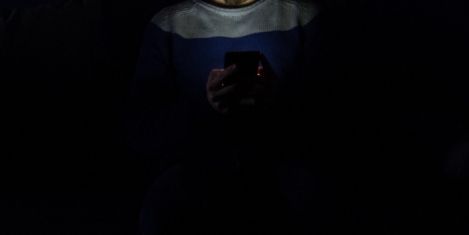


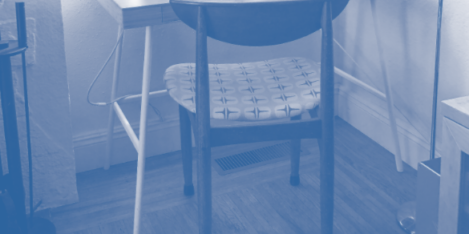

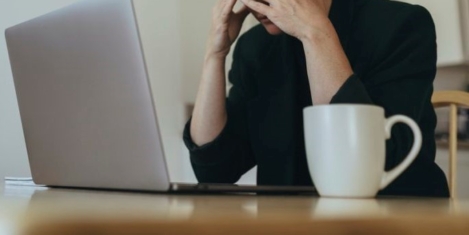












November 23, 2020
The crisis is making us more authentically human at work
by Jill Dark • Comment, Flexible working, Wellbeing, Workplace design